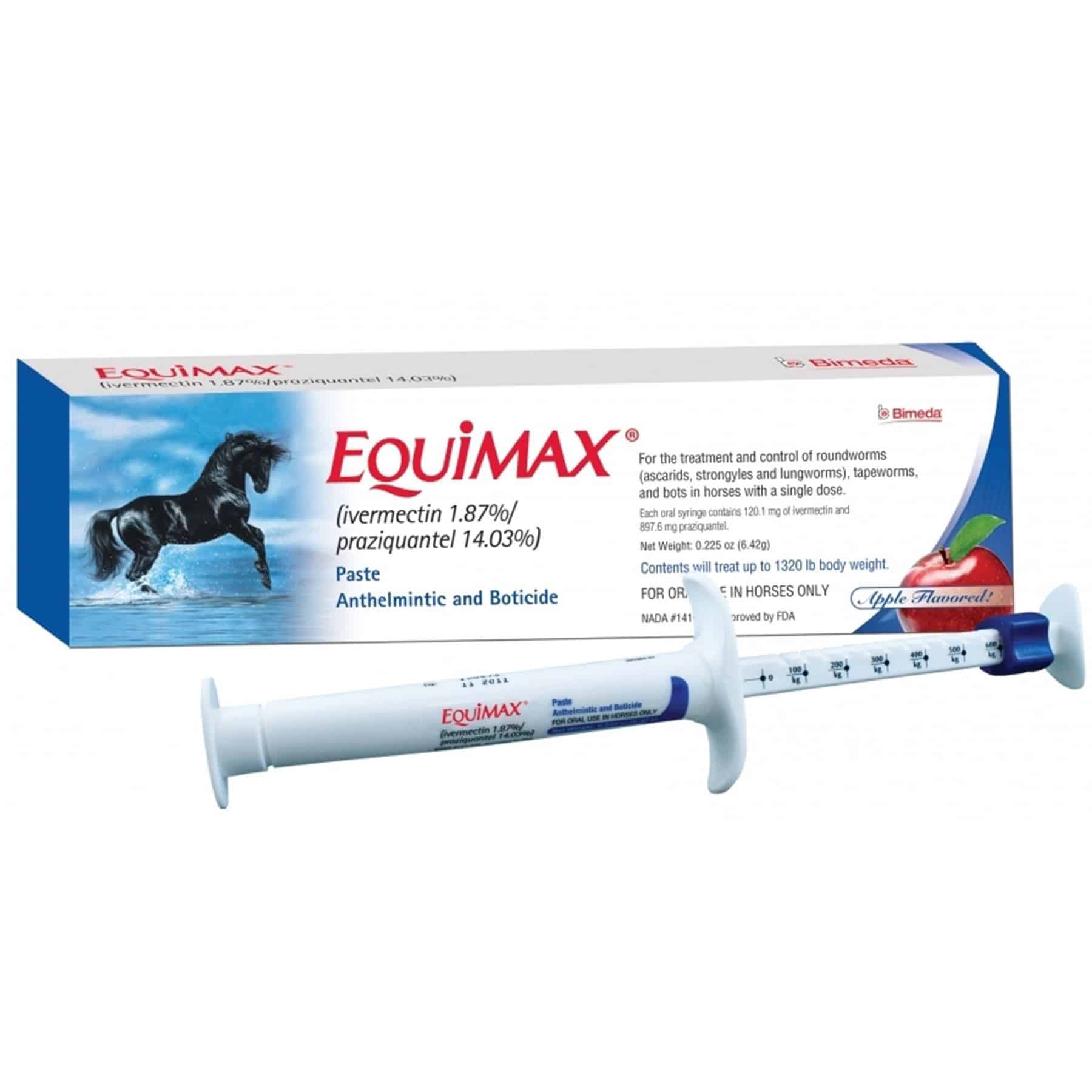DOSAGE AND ADMINISTRATION: This syringe contains sufficient paste to treat one 1320-lb horse at the recommended dose rate of 91 mcg ivermectin per lb (200 mcg/kg) and 0.68 mg praziquantel per lb (1.5 mg/kg) of body weight. Each weight marking on the syringe plunger delivers enough paste to treat 220 lb (100 kg) of body weight.
- While holding plunger, turn the knurled ring on the plunger 1/4 turn to the left and slide it so the side nearest the barrel is at the prescribed weight marking.
- Lock the ring in place by making a 1/4 turn to the right.
- Make sure that the horse’s mouth contains no feed.
- Remove the cover from the tip of the syringe.
- Insert the syringe tip into the horse’s mouth at the space between the teeth.
- Depress the plunger as far as it will go, depositing paste on the back of the tongue.
- Immediately raise the horse’s head for a few seconds after dosing.
Do not underdose. Ensure each animal receives a complete dose based on a current body weight. Underdosing may result in ineffective treatment, and encourage the development of parasite resistance.
SAFETY: EQUIMAX Oral Paste may be used in horses 4 weeks of age and older. Stallions and breeding, pregnant or lactating mares may be treated without adverse effects on fertility.
In a tolerance study in which 3- to 4-week-old foals were treated at 10X once, loose watery stools were observed on post-treatment days 1, 2, and 5-9 in one foal. These signs resolved without treatment by day 10, and no other foals were affected.
In a reproductive safety study, eleven mares were treated with a 3X dose of EQUIMAX Oral Paste every two weeks throughout breeding, pregnancy and lactation, up until the foal was three months of age. Ten mares served as controls and were treated with the vehicle paste in a similar manner. An increased incidence of colic was observed in treated mares as compared to control mares. In addition, elevations of GGT and AST were more frequent in the 3X treated mares, and in two mares these enzymes were elevated at the time of colic episodes.
One treated mare was dropped from the study because she did not conceive after three breeding attempts.
Two treated mares had abnormally short diestrous periods of two days and eight days on the first estrous cycle following the birth of the study foal. In addition, one of these two mares failed to ovulate in the second and third estrous cycles.
In the first few weeks of life, foals born to the 3X treated mares had a higher incidence of transient ocular discharge and gastrointestinal disturbances (loose stools, diarrhea) and depression requiring medical intervention as compared to foals born to control mares.
PRECAUTIONS: EQUIMAX Oral Paste has been formulated specifically for use in horses and ponies only. This product should not be used in other animal species as severe adverse reactions, including fatalities in dogs, may result.
WARNING: Do not use in horses intended for human consumption.
HUMAN WARNINGS: Not for use in humans. Keep this and all drugs out of the reach of children. Refrain from eating or smoking when handling. Wash hands after use. Avoid contact with eyes. The Safety Data Sheet (SDS) contains more detailed occupational safety information. To report adverse reactions in users, to obtain more information, or to obtain a SDS, contact Bimeda Inc. at 1-888-524-6332.
ENVIRONMENTAL WARNINGS: Ivermectin and excreted ivermectin residues may adversely affect aquatic organisms. Do not contaminate ground or surface water. Dispose of the syringe in an approved landfill or by incineration.


Reviews
There are no reviews yet.